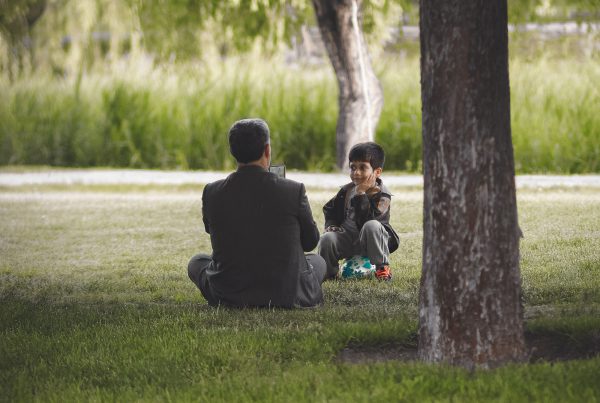Going to college – whether for the first time or returning – can be a daunting time. Along with the excitement of new experiences on the horizon, there is homesickness, culture shock, new responsibilities, and so much more ready to greet you as well. From research, we know that mental health problems are frequently seen in college students. Just to outline a few psychiatric concerns hurting this population:
- According to student surveys from the American College Health Association (ACHA), about 63% of respondents experienced “overwhelming” anxiety, while 40% experienced depression so severe they had trouble functioning
- 23% report being diagnosed or treated by a mental health professional for anxiety in the last year
- Approximately 12% of college students go on to develop anxiety disorders that last after college
- 10% screen positive for an eating disorder
- In an Association of American Universities report, nearly 20% described experiencing suicidal ideation
- A 2019 study showed how college students are also at an increased risk for developing an addiction with 35% of students admitting to binge drinking in the last week, while 25% admit to abusing stimulants to enhance studying
The increasing prevalence of mental health concerns amongst college students was demonstrated by a 2019 Pennsylvania State University study that found the demand for campus mental health services spiked by about 30-40% during a period that only saw a 5% increase in enrollment. All that said, the most resounding facts that are known about poor mental health in college students is that it is common, it is caused by several factors, and it is gradually getting worse.
For those getting ready to head to college, acknowledging that you’ll be adjusting to a changing environment with new expectations and stressors is the first step in helping yourself through what could be a difficult time. Coping with the “college transition” isn’t reserved for incoming freshmen, either. Whether you just received an acceptance email or registered for senior year courses, mental health problems don’t discriminate. Tending to your mental health as a college student (and beyond) should be a priority, and fortunately, there are several practices and resources to help you do that.

”College is often the first time our comfort zone is stretched on all fronts in really big ways. Don't just hit the books to pass your classes; use college as an opportunity to get to learn about yourself. Staying curious and noticing how you feel in new situations, big or small, can be useful information to help you develop a strong sense of who you are and who you want to be that will help you well beyond college.
Christy DesaiLMFT and Co-Founder & CEO of Okay Humans
Make Mental Health Prevention Plans
The moment you get back to campus, you will face stressors – some you had accounted for, and others you didn’t. Making preventative mental health treatment plans could be a helpful way to minimize the stress of going back to campus. Some examples of this may be:
- In order to avoid the overwhelming feeling of accumulating work, take a look at your syllabi before the start of classes and write out assignment, exam, quiz, etc. dates in a planner. This can prevent you from falling behind on work or getting caught off guard by due dates you forgot about.
- In order to avoid an unhealthy work-life balance, consider scheduling your free time before starting the academic year. For example, you could set aside every Saturday from 5pm to midnight for time with friends. Actively scheduling your free time is a way to set a boundary with yourself. That way, you’re less inclined to fall into the trap of constantly moving onto your next task(s) without taking a break.
- In order to avoid feeling lonely because you do not know anyone at your new school, search through your college’s extracurricular activity page and write down the names of some clubs or activities you would like to join. Several organizations have summer activities for incoming potential new members to learn more about them and their members. Reaching out to the members of activities you are interested in could help you find friends before even stepping foot on campus.
- In order to avoid neglecting your physical health when things get stressful, identify healthy resources around you before heading back to school. Find nutritious meal options near your apartment to fall back on if you don’t have time to cook one evening. Take a look at your university’s recreation center schedule to find weekly workout classes you can attend that don’t conflict with your class schedule. List small, easy ways you can prioritize your physical health even in stressful times.
- In order to help yourself find motivation in your lower moments, join professional organizations that align with your career and/or goals. Not only will being in such organizations help you find exciting opportunities, they provide a community of people with similar goals and interests who likely understand many of the obstacles you will face. Talking to others who have experienced similar difficulties and learning about how they overcame them can help you find the motivation to persevere through your struggles.
- In order to avoid feeling helpless in difficult situations, identify the mental health resources your school is ready to provide at any given moment. Before the start of classes, enter the phone number of the 24/7 student crisis hotline into your phone, visit the mental health resource building, join mental health advocacy organizations on campus.
The purpose of these preventative mental health plans is to take some stress off of your future self. More than likely, the last thing you’ll feel like doing when you’re experiencing a challenging moment in college is take even more time and energy to strategize a plan to deal with your problem. So, if you can identify and avoid some of your known stressors, that will leave your future self with the time and energy to better deal with inevitable, unexpected stressors.

”If you feel you’re struggling to manage the stress of going back to college or even while you are at school, know that you are not alone. Do your best to familiarize yourself with the resources and practices that help you cope with mentally challenging times and take it one day at a time.
Dr. Kirsten ThompsonFounder, CEO & Psychiatrist, Remedy
Dealing with Mental Health Concerns in Real Time
Making preventative mental health plans can help you with expected stressors, but what do you do when you still find yourself experiencing difficult mental health episodes? For many, no amount of preventative measures could fully protect one from experiencing mentally challenging times. Fortunately, there are always ways to help yourself cope and heal during those times.
- Utilize your university mental health center. Campus resources can be incredibly useful in treating the onset of a mental health problem. Even if you require more intense treatment, your college’s resources can walk you through the process of getting an individual therapist, such as the preliminary steps of contacting your insurance or identifying the right treatment for you.
- Further prioritize your physical well-being. Use food as medicine by eating nutritious meals, help your mind recover from difficult days by prioritizing 7-9 hours of sleep, break up your study time with a yoga or meditation session to supply your body with more endorphins. In moments of distress, taking care of your physical health can be the most immediate method of tending to your mental health.
- Spend time with people you like. Did you know that low levels of social interaction are associated with poorer overall health throughout a person’s lifetime? The brain is a social organ and our lives are shaped by the interactions we have with others. Stress, anxiety, and loneliness are all negative emotions that are often alleviated by the presence of good people.
- Take a break to put things in perspective. We all know the feeling – in moments of deep distress we’re often far less productive and/or we produce lower quality work. Although it may go against everything you believe you need to do at that moment, taking a break to go on a walk, listen to music, prepare a good meal, etc. can help minimize the intensity of your problems. Taking a break will not be the end of the world, and will more than likely help reset your mindset.
- Seek help. If you find that your mental health struggles are impeding on your academic ability and/or day to day, it may be helpful to speak to your university’s mental health center and/or disability resource center. The staff at these centers can get your condition properly assessed and help direct you to resources such as a talk therapist and/or psychiatric provider, to help you succeed in an academic setting.
On a related note, many professors are willing to hear your struggles and discuss a compromised plan of action for you to succeed in their class. Your professors do not want to see you fail, but they need to recognize sincere effort from their students. Therefore, be prepared to invest energy into office hours, lecture participation, etc., especially in courses you are struggling the most with.
College is often the perfect storm for extreme highs and extreme lows. Some days you’ll feel grateful for having met lifelong friends, and other days, imposter syndrome will make you question your every ability. Just keep in mind: gaining independence, meeting all new people, moving away from home, adjusting to a more rigorous schedule, etc. aren’t natural skills anyone has! Change is hard for anyone, but college students have to constantly adapt to a fast-changing environment. Mental health problems will arise at varying times and severities for different college students. You’re definitely not alone.







